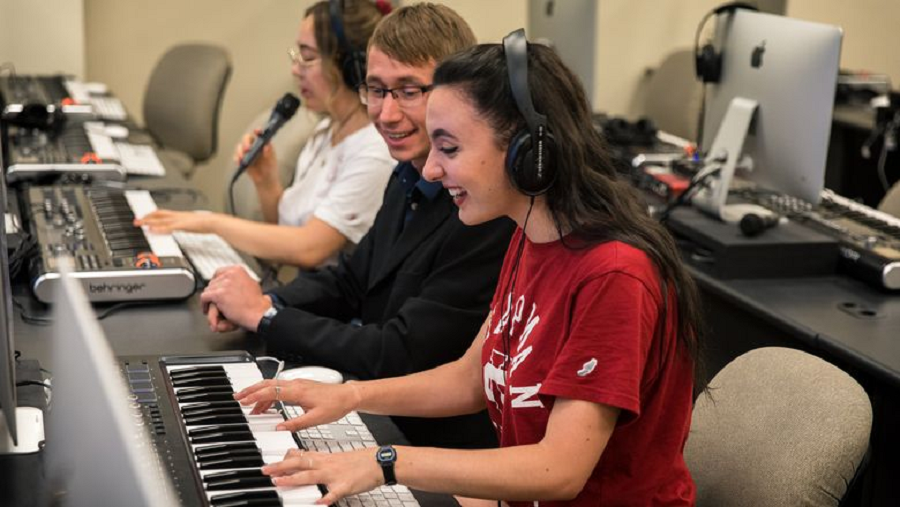Music composition is an art form that melds creativity, technical skill, and a deep understanding of musical theory. If you’re passionate about creating music, studying music composition at a music college can be a transformative experience. Here are the top five benefits of pursuing a music composition program at a specialized institution.
1. Access to Expert Faculty and Mentorship
One of the most significant advantages of studying music composition at a music college is the access to expert faculty and mentors. These professionals bring years of industry experience and academic knowledge to the classroom, providing invaluable insights and guidance. Their mentorship can help you refine your composition skills, develop your unique style, and navigate the complexities of the music industry. Personalized feedback and one-on-one sessions with seasoned composers can accelerate your growth and ensure you’re on the right path to achieving your musical goals.
2. Comprehensive Curriculum and Hands-On Learning
Music colleges offer a comprehensive curriculum designed to cover all aspects of music composition. From classical theory to contemporary techniques, you’ll receive a well-rounded education that broadens your musical horizons. Courses often include orchestration, arranging, music technology, and film scoring, among others. Hands-on learning opportunities, such as composing for live ensembles and participating in recording sessions, allow you to apply theoretical knowledge in practical settings. This immersive approach ensures you graduate with both the theoretical foundation and practical experience needed for a successful career in music composition.
3. State-of-the-Art Facilities and Technology
Studying at a music college gives you access to state-of-the-art facilities and the latest technology. High-quality recording studios, performance spaces, and computer labs equipped with industry-standard software are just some of the resources available to students. These facilities provide an ideal environment for experimentation and creativity. You’ll learn how to use advanced tools and technology that are essential for modern music composition, giving you a competitive edge in the industry.
4. Networking Opportunities and Industry Connections
A music college environment is rich with networking opportunities. You’ll interact with fellow students, faculty, and visiting industry professionals, building connections that can be crucial for your future career. Music colleges often host events, workshops, and masterclasses with renowned composers and musicians. These events not only provide learning opportunities but also a chance to network with influential figures in the music world. Additionally, colleges often have partnerships with industry organizations, offering internships and job placement assistance that can help you kickstart your career.
5. Creative Collaboration and Peer Learning
Being surrounded by like-minded individuals who share your passion for music composition fosters a collaborative and inspiring environment. You’ll have the chance to work on group projects, participate in ensemble performances, and collaborate on creative compositions. Peer learning is an integral part of the music college experience, where you can gain new perspectives, learn from your peers’ strengths, and receive constructive feedback. This collaborative atmosphere not only enhances your learning experience but also helps you develop teamwork skills essential for professional success.
Conclusion
Studying music composition at a music college offers a unique blend of expert instruction, practical experience, and valuable networking opportunities. The comprehensive curriculum, state-of-the-art facilities, and collaborative environment provide an ideal setting for honing your craft and preparing for a successful career in music composition. If you’re serious about becoming a composer, enrolling in a music composition program at a music college can be a pivotal step in achieving your musical aspirations.




